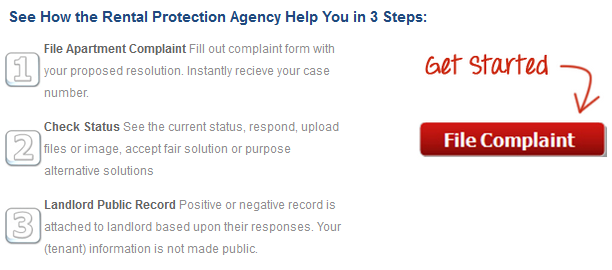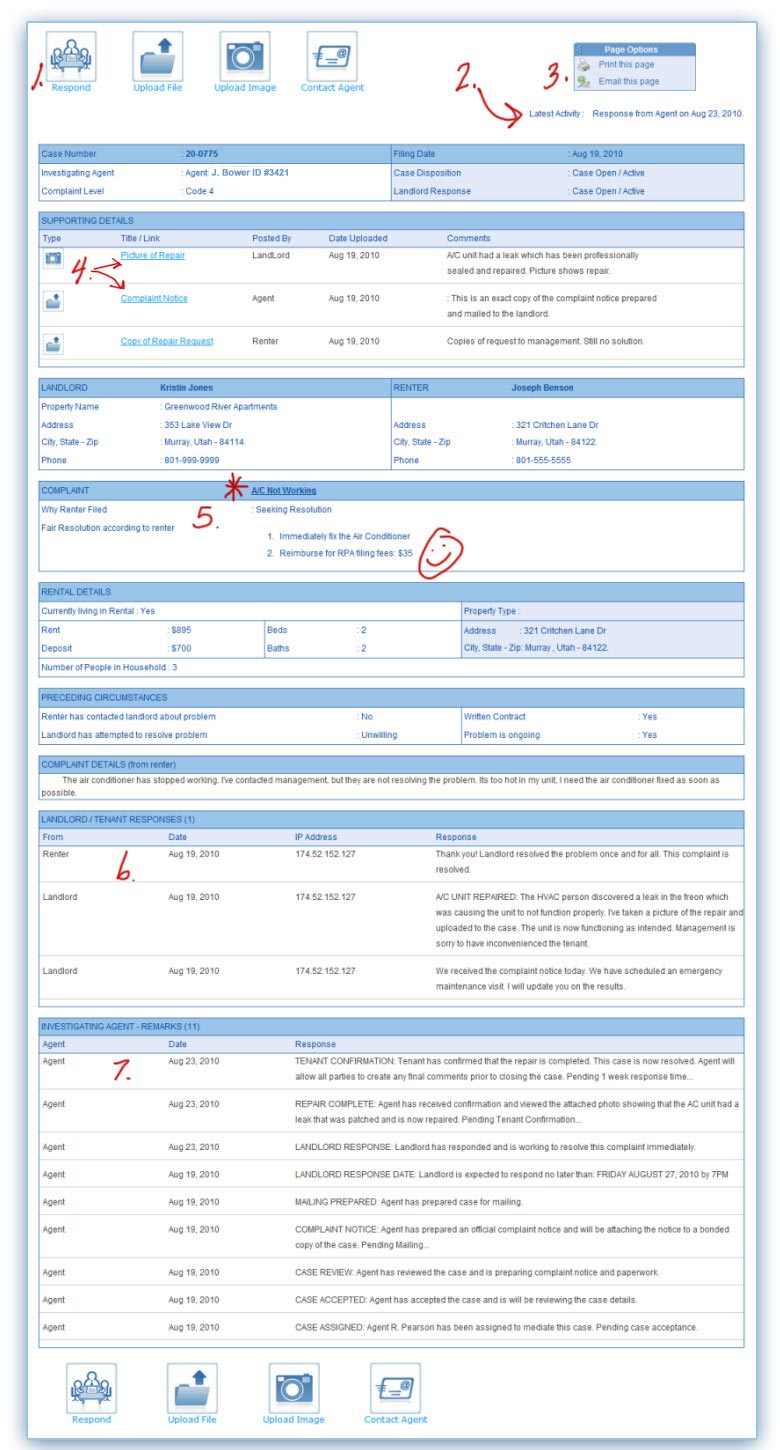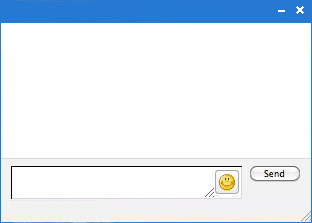Rights of Disabled Tenants
By Tenant
I am a person with disability but I have been renting all my life. I just moved to another state and tried to get an apartment. I went to Craigslist and found this beautiful apartment that has a ramp – perfect for my wheelchair. So I went over to get the answers to some additional questions that the ad left out. I had high hopes for the place but unfortunately, I was turned down. It was very surprising because they didn’t even ask for my personal and financial information and just said that I couldn’t rent. Isn’t this some kind of discrimination that I needed to report?
So after going through a lot of information available online and asking a few friends, I decided to file a complaint against that landlord. A new friend directed me to RPA and I used their complaint center. It wasn’t like a revenge or something. I just wanted to make sure that they be informed of their mistake so future tenants would not be treated so unkindly.
Who are disabled?
People with disability would be those who have:
- mental or physical limitations
- records of disability
- been considered by others as someone with disability
- mobile, visual, and hearing impairments, mental retardation, and alcohol and drug addiction (not caused by illegal substances)
- HIV, AIDS and other related diseases as well as mental illness
What are the rights of a disabled prospect tenant?
According to the Fair Housing Act, tenants must not be discriminated based on their disability. This means that they should be allowed equal chance and treatment in tenant screening. A landlord is also not allowed to ask the tenant applicants regarding the extent of the disability or if there is disability at all. A look into the medical records is strictly prohibited as it has no bearing on the tenants’ ability to pay rent.
The only questions a landlord may ask would be the following:
- If you can meet the tenancy requirements
- If you abuse or are addicted to illegal and controlled substances
- If you qualify for a rental unit that is available only to people with disability
- If you quality for a rental unit that is offered on a priority basis only
When awarded the rental unit, the disabled tenant may modify it to make it safe and comfortable to live in. The landlord may also be asked to install dedicated outlets for medical equipment. If these will make living difficult for the next tenant, then the landlord may inform the tenant that the original setup be restored upon moving out.
Sometimes a landlord may ask for proof to justifications that you will make to the apartment unit. This is because there are some disabilities wherein their special needs are not very obvious – for example, mental illness.
So if your landlord goes against these provisions set in the Fair Housing Act, seek third party assistance through a mediation company or through a lawyer.
Edited on: Tuesday, August 6th, 2013 2:39 pm
10 Responses to “Rights of Disabled Tenants”
|
Anonymous February 14th, 2013 12:20 am |
|||
|
Honestly, I don’t like it when people with disability come asking for accomodation. But I know that they are still prospect tenants and they have the right to live in my apartment. It’s just that there are a lot of adjustments that need to be done and I personally feel like they will become more of liabilities. |
|||
|
Anonymous February 14th, 2013 5:40 am |
|||
|
If he’s disabled, there should be the contact information of the social worker so that if anything comes up, the landlord would know who to contact. |
|||
|
Anonymous February 14th, 2013 11:00 am |
|||
|
I am disabled and I find it difficult to live on my own. I find it even more difficult to have an inconsiderate landlord who is rude and unwilling to make adjustments that I have the right to. That’s why I just moved back with my mother. At least she can help me out whenever I needed helping. |
|||
|
Anonymous February 14th, 2013 4:20 pm |
|||
|
As a tenant, people with disability, in general, are okay to live with. But someone who has mental illness or a history of mental illness is unacceptable. What if he suddenly becomes violent then no one is around to control him? That would be very unsafe for us. |
|||
|
Anonymous February 14th, 2013 9:40 pm |
|||
|
Correct. It is very important that you keep the contact information of the parent or social worker so that you will know who to call in case of an emergency. |
|||
|
Anonymous February 15th, 2013 3:00 am |
|||
|
I used to have a tenant who had an illness. She asked that I keep her key so that in case I come knocking and she doesn’t answer, I should just go right in. I felt like I have another baby girl to check on every once in a while. It was an added responsibility but she has the right to live in my apartment just like the rest of my other tenants. |
|||
|
Anonymous February 15th, 2013 8:20 am |
|||
|
A disabled tenant is actually more likely to pay rent on time because he knows that if you kick him out, he would have a difficult time looking for another apartment to rent. But that’s just based on my experience. |
|||
|
Anonymous February 15th, 2013 1:40 pm |
|||
|
Thank for you this article. It made me understand my rights better. |
|||
|
Anonymous February 15th, 2013 7:00 pm |
|||
|
I’m disabled but I get good money by working from home. So you see, just because I’m disabled doesn’t mean that I’m different from the rest of your tenants. |
|||
|
Anonymous February 16th, 2013 12:20 am |
|||
|
Of course this makes sense. A person’s medical record is always confidential and no landlord has the right to open it or gain access to it. |
|||
Close
Yes, the RPA® Can Help You!
Filing an official complaint is the nation's fastest way to solve tenant problems.

Not Ready? Learn more...
Need Help Filing Your Complaint?
Agents Available Mon- Fri 10am to 10pm
Recently Resolved Complaints:
See how the Nation's Rental Authority has helped thousands of tenants already!
-
Repair issue, Breach of a...
Phoenix, Arizona - 85029
Case Number 23-2480
-
Reported Repairs Which Co...
Washington, West Virginia - 26181
Case Number 23-6772
-
Wrongful Eviction, Repair...
Las Vegas, Nevada - 89115
Case Number 23-7546
-
Landlord Will Not Take R...
Glendale, Arizona - 85308
Case Number 23-7260
-
Claims Rent Wasn\\\\\\\\\...
Washington , Missouri - 63090
Case Number 24-3301
Ask Question:
Post a new question to the RPA Tenants rights forum.
You Have Tenant Rights.

Recently Posted Questions:
Over 4,000 questions have been asked by tenants including these new posts:
Tenant Rights Categories
Popular categories about renters rights.
-
- Apartment Complaint (618)
- Frustrated Landlord (21)
- Frustrated Renter (949)
- General Topics (556)
- Landlord humor (2)
- Landlord Legal (25)
- Landlord Problems (846)
- Landlord Q & A (14)
- Landlord Stories (5)
- Landlord Tips (7)
- Legal Questions (1105)
- Rent Horror Stories (192)
- Rent Humor (12)
- Renter Q & A (449)
- Tenant Problems (34)
- Videos Post (109)













